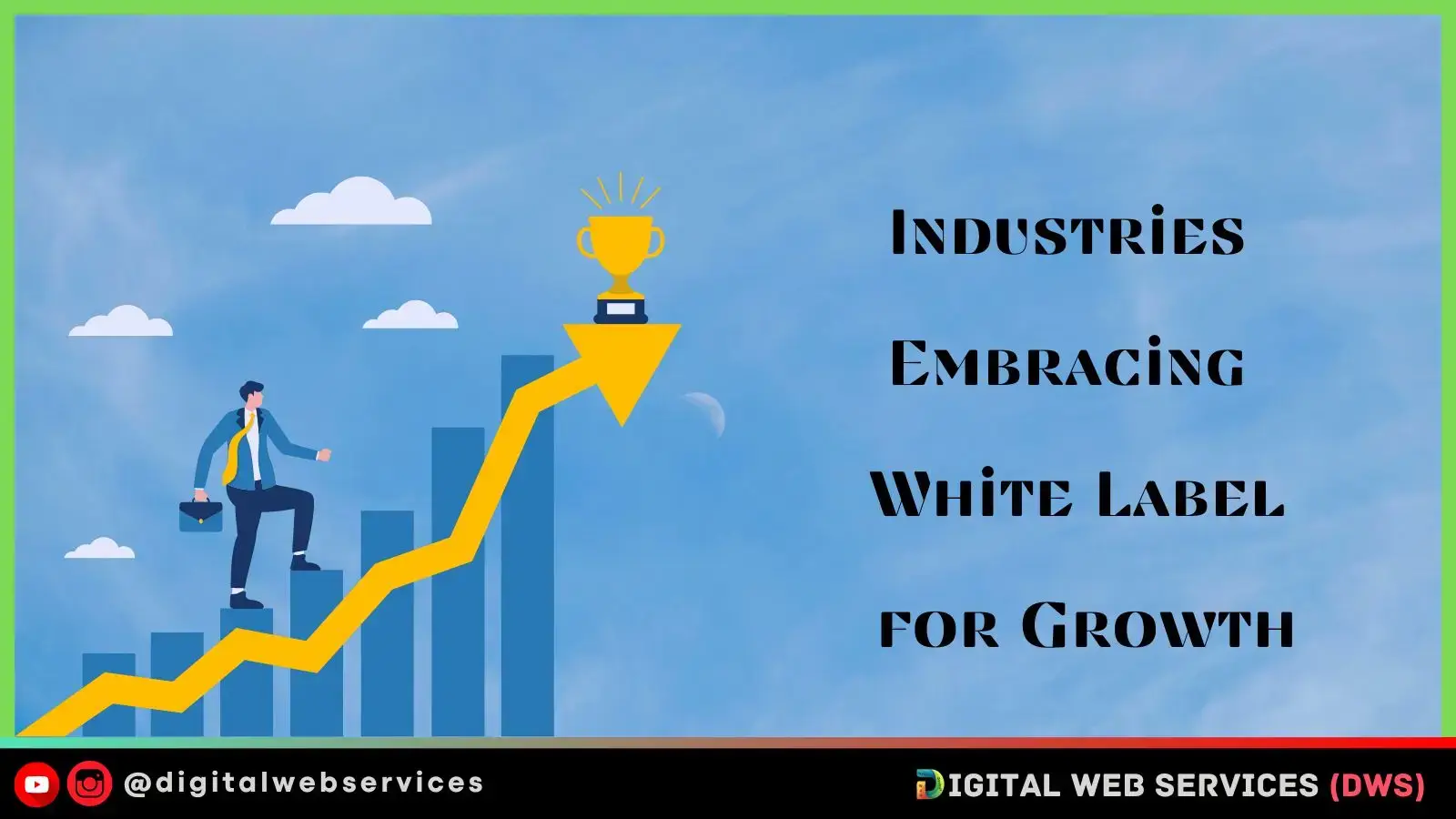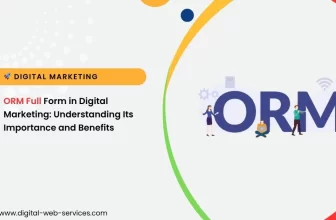
White labeling products or services is becoming an increasingly popular strategy across many industries. As a business owner, embracing white-label solutions can help drive growth by expanding your offerings and reaching new customer segments.
According to Emily Thomson, Digital Marketing Manager at LabsMedia, “White labeling enables companies to accelerate time-to-value by integrating external innovations under their trusted brands to rapidly adapt solutions to dynamic customer demands.”
In this article, let’s deeply explore eight industries successfully leveraging white labeling and why it represents such an appealing growth avenue.
What is White Labeling?
White labeling refers to products or services produced by one company that other companies rebrand to make them appear as their own branded offerings. The approach allows businesses to sell products they haven’t developed under their brand name. Customers may also associate the white-labeled products with the companies retailing them as part of their product portfolio.
- For the original producer, white labelling allows entering new markets or customer segments without having to directly promote or distribute the items. Companies can rely on channel partners to handle downstream marketing and sales under their partner brand names.
- For the retailer or reseller company, white labelling presents a faster, cheaper alternative to developing proprietary offerings in-house. The lower barriers to entry allow smaller players to diversify product lines faster while competing with larger established vendors.
The white label producer benefits from expanded reach, while retail partners gain quick routes to enhance their value proposition. It represents a win-win scenario facilitating competitive collaboration.
8 Industries That Leverage the White Label Services for Growth
Many sectors recognize the tremendous potential of white labeling to efficiently grow their customer base by blending external competencies with internal capabilities. Some prominent domains embracing white-label solutions include:
1. Electronics
Consumer electronics represents a prime avenue for white-labeled products and component modules. Players like laptop makers, smartphone manufacturers, tablet producers, and gaming hardware companies actively embrace white labeling.
Key drivers include:
- Fiercely competitive markets: Low margins compel players to differentiate through frequent new product introductions and expanded catalogue depth. White labeling aids rapid portfolio enhancement.
- Need for agility: Continuously evolving consumer demands and trends (foldable displays, wearables etc.) require swift product development changes. White labeling adds speed and versatility.
- Platform-based ecosystems: Ecosystem consistency allows interchangeably integration of white labeled components like sensors or SoC modules from specialty producers.
White labeling allows large consumer OEMs to retain existing customers while also tapping into niche segments through customizable product spin-offs catering to underserved consumer subsets.
2. Software
From business intelligence tools to mobile apps, software represents a sector embracing white labeling for distribution at scale. Developers create solutions that other companies customize by tweaking features, branding, pricing plans and selling to their audiences under their name.
Appeal factors include:
- Solutions adapting to vertical niches
- Strengthened credibility from established vendor branding
- Lower overhead for smaller resellers to participate in enterprise segments
This can help smaller software firms without large sales machinery quickly scale up distribution through partnerships. Meanwhile, larger resellers gain tailored products complementing their solutions suite. However, to market your products, you need a reliable digital marketing agency. And, it’s difficult to choose the right one, these factors help you choose the best agency.
3. Financial Services
Banks, insurance agencies, and other financial service providers white label offerings from fintech partners for competing with digitally savvy challengers. Instead of building products in-house and owning the technology stack, they collaborate with agile startups to provide the tools.
Key motivators consist of:
- Expanding portfolio reach to attract younger demographics
- Leveraging specialization from emerging disruptors
- Mitigating digital transformation investments
White-labeled neobank interfaces, payment technologies, roboadvisory platforms etc. help incumbents counter disruption. It expands customer niches without intensive R&D resource demands.
4. Telecom
Mobile virtual network operators (MVNOs) represent perhaps the most well-known category leveraging telecom white labeling. By reselling network bandwidth from existing carrier infrastructure, MVNOs bypass infrastructure costs to provide wireless services piggybacking on partner networks.
Compelling aspects consist of:
- Asset-light operating models
- Niche demographic targeting
- Innovative bundling approaches (family plans, traveler data packs)
- Incumbent market expansion to secondary customer tiers
The approach concentrates competitive differentiation to flexible packages rather than technology stack ownership.
5. Healthcare
Medical technologies represent promising white-label application areas. From Quantified Self wearables to remote patient monitoring systems, white labeling enables rapid rollout. Hospitals and insurance firms also integrate white-labeled telehealth and care management solutions into existing digital platforms to remain updated.
Advantages comprise of:
- Customer reach expansion through trusted healthcare brands
- Specialized solution integration without added clinical skill training
- Lower compliance barriers for regulated tools like digital therapeutics
It fulfills patient demands for cutting-edge treatment options conveniently fitting provider ecosystems.
6. Utilities
Energy suppliers like gas and electricity companies white label offerings from renewable energy firms providing carbon offsets or clean power alternatives. This allows marquee utility brands to:
- Meet sustainability-conscious customer demands
- Address ecological compliance needs
- Test green solution viability before large infrastructure overhaul
The renewable asset partitioning limits transitional business risks while tapping into modern consumer shifts through proven offerings.
7. Cannabis
In the fast-emerging legalized cannabis industry, companies face daunting compliance barriers spanning cultivation licensing to sales restrictions. Here white labeling cannabis products offers an attractive entry point for consumer brands to participate without managing farming or processing complexities.
Instead specialty producers handle:
- Navigating regulatory conditions
- Managing growing/extraction operations
- Quality consistency enforcement
while partners focus on branding, marketing and building mindshare. The separation of duties makes collaborating compelling.
8. Cryptocurrency
Cryptocurrency exchanges and wallet providers are often white-label platform solutions offered by blockchain infrastructure companies instead of owning technology stacks. Motivations include:
- Launching faster with proven technology
- Accessing Updates from dedicated technology partners
- Shifting focus to transaction growth and ecosystem enlargement
By leveraging back-end stability and security, front-end agility heightens through more flexible feature enhancement. In addition, to make your business more visible to the end-users, you need to apply different strategies, which help to make informed decisions.
6 Advantages of White Label Services
What factors exactly make white labeling so appealing across industries? At a strategic level, some key benefits include:
1. Time-to-Market Velocity
There is no need to develop offerings completely in-house. Collaborating with solution specialists allows faster time from conception to launch through market-validated products.
2. Cost Economies
Save extensively on internal production and technology R&D expenses by leveraging specialized third-party products. Also, avoid initial promotional investments for new solutions.
3. Focus Enhancement
Build on existing go-to-market capabilities instead of investing in non-core production and technological capacities. Aligned redistribution of resources.
4. Offering Expansion
Grow catalogue beyond internal capacity constraints through external ecosystems. Continuously test and add solutions addressing adjacent customer needs.
5. Responsiveness Agility
Swiftly adapt solutions by closely working with innovative partners already addressing the latest customer demands. Create feedback loops for tuning.
6. Risk Management
Test new solution viability with customers before fully building large production capabilities in-house. Iteratively validate product-market fit.
Conclusion: Embracing Partnerships for Growth
White labeling enables businesses to drive revenue growth in an asset-light fashion by blending external competencies. For both producers and channel partners, it opens avenues to participate in promising segments while focusing internal resources on core activities.
With these multifaceted advantages at strategic and operational levels, it’s evident why diverse industries actively turn towards white-label partnerships. Collaborating allows brands to extend their reach and consistently adapt to evolving demands for sustaining customers in the long term.
Carefully assessing alliance opportunities allows companies to pick the most promising avenues for expansion. Ultimately by outpacing customer expectations together, competition strikes the right balance between agility and stability as modern business environments grow increasingly complex.
Digital Web Services (DWS) is a leading IT company specializing in Software Development, Web Application Development, Website Designing, and Digital Marketing. Here are providing all kinds of services and solutions for the digital transformation of any business and website.










